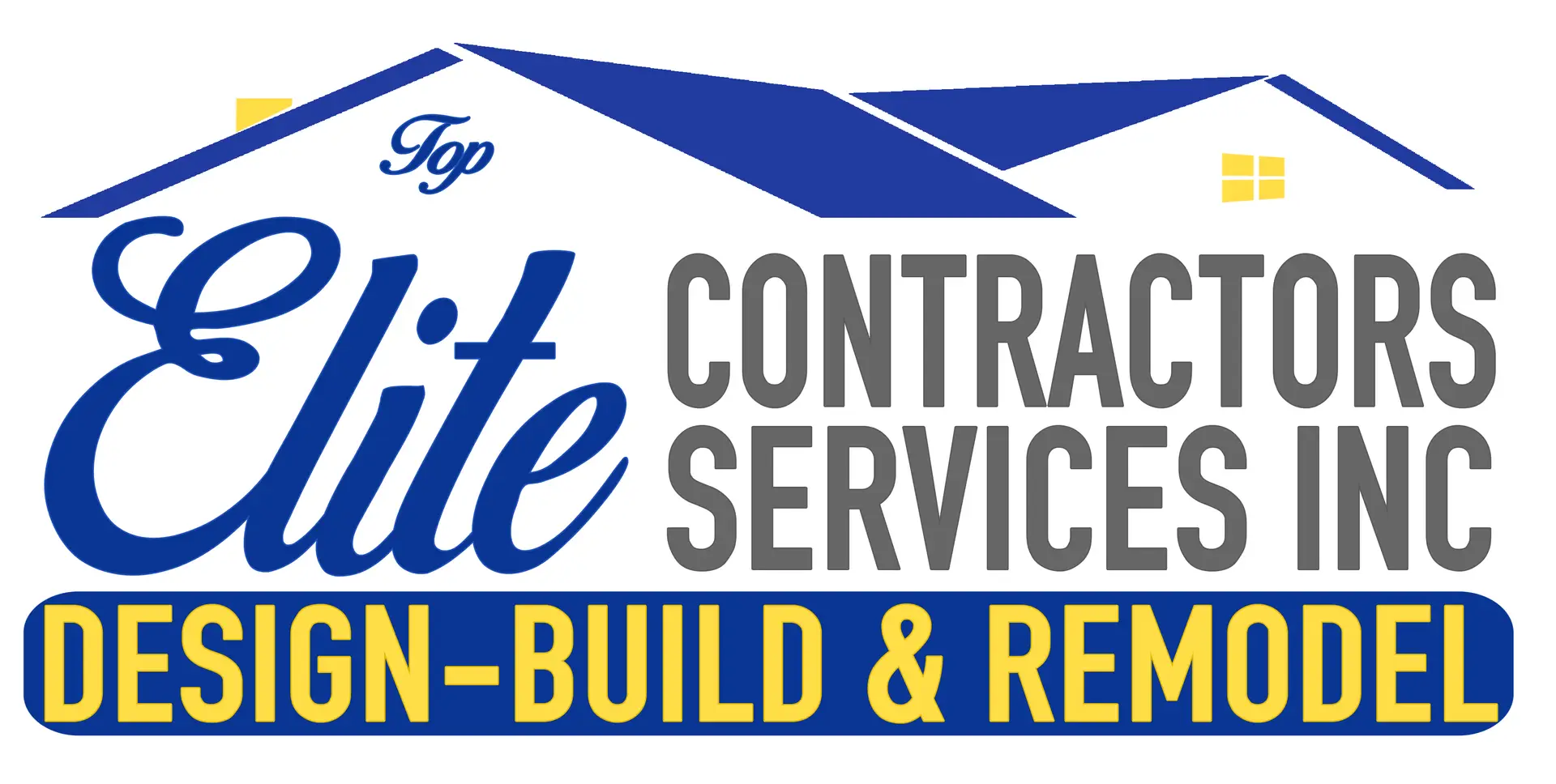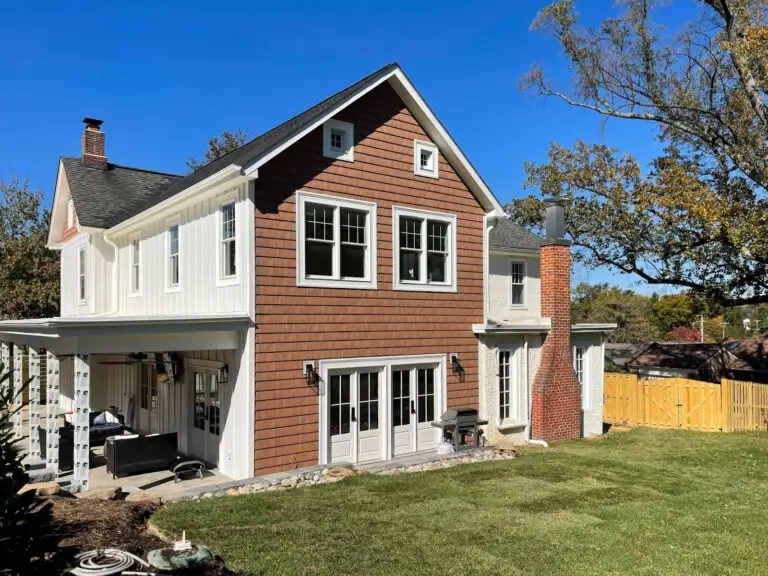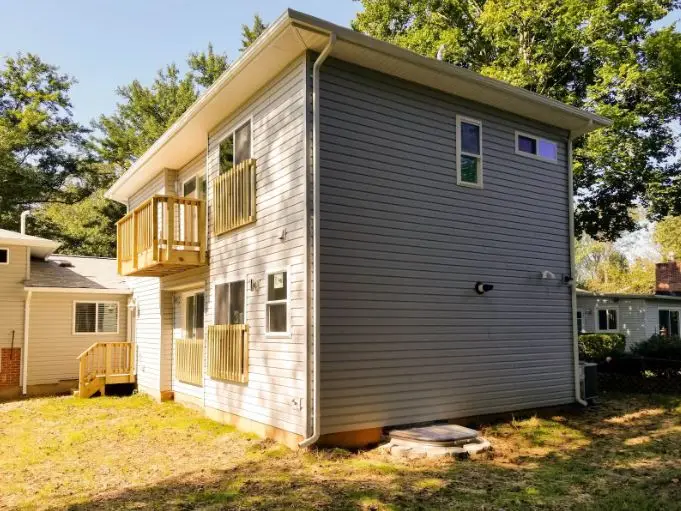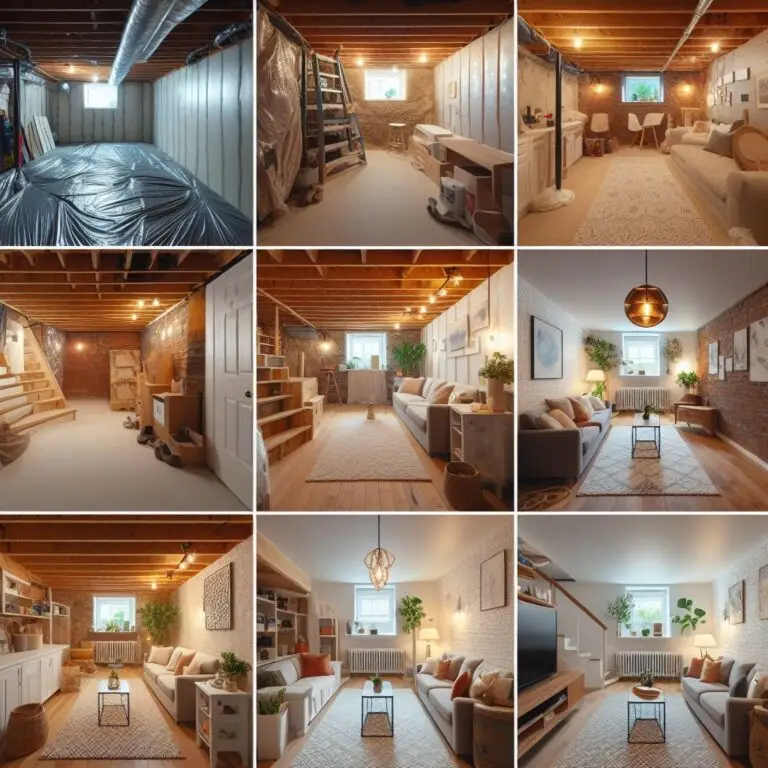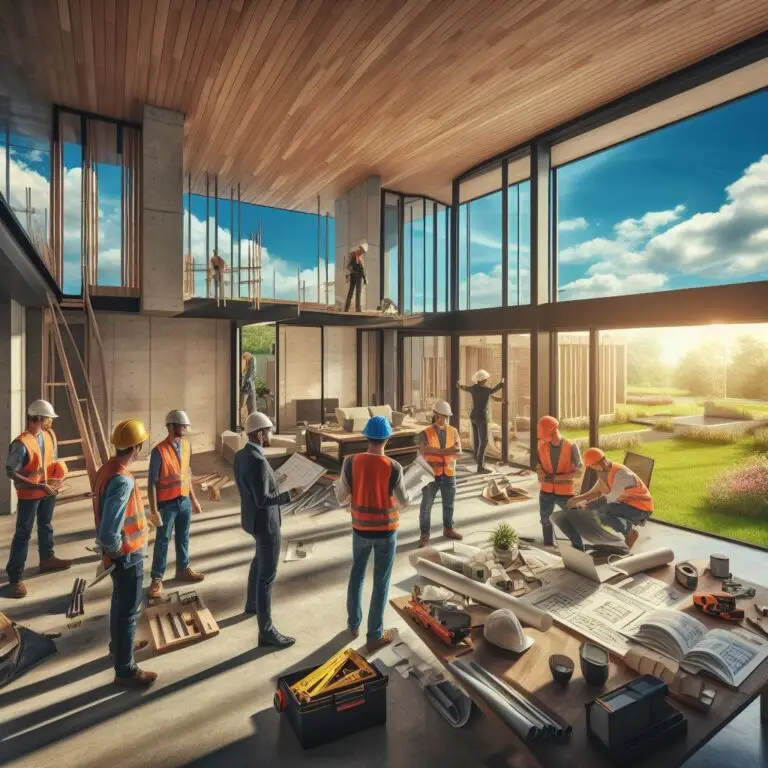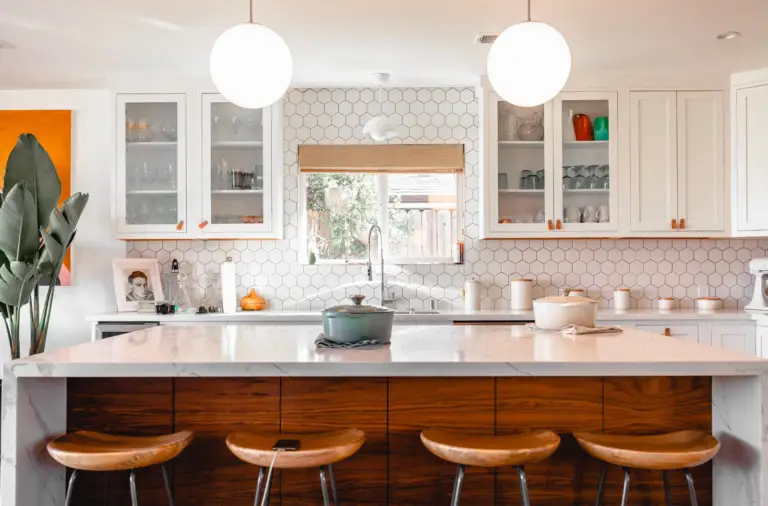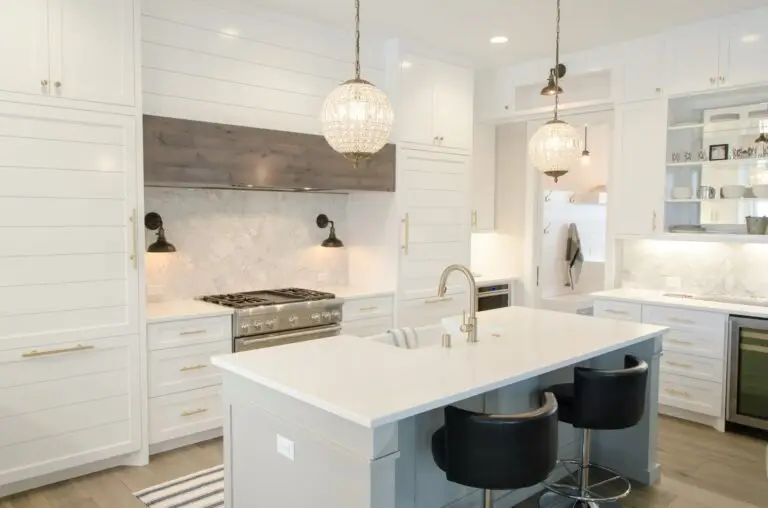The typical home addition project costs between $80 and $250 per square foot, depending on the scope of finishes and the complexity of the project. Discover the cost per square foot for home additions and what factors influence pricing in this post.
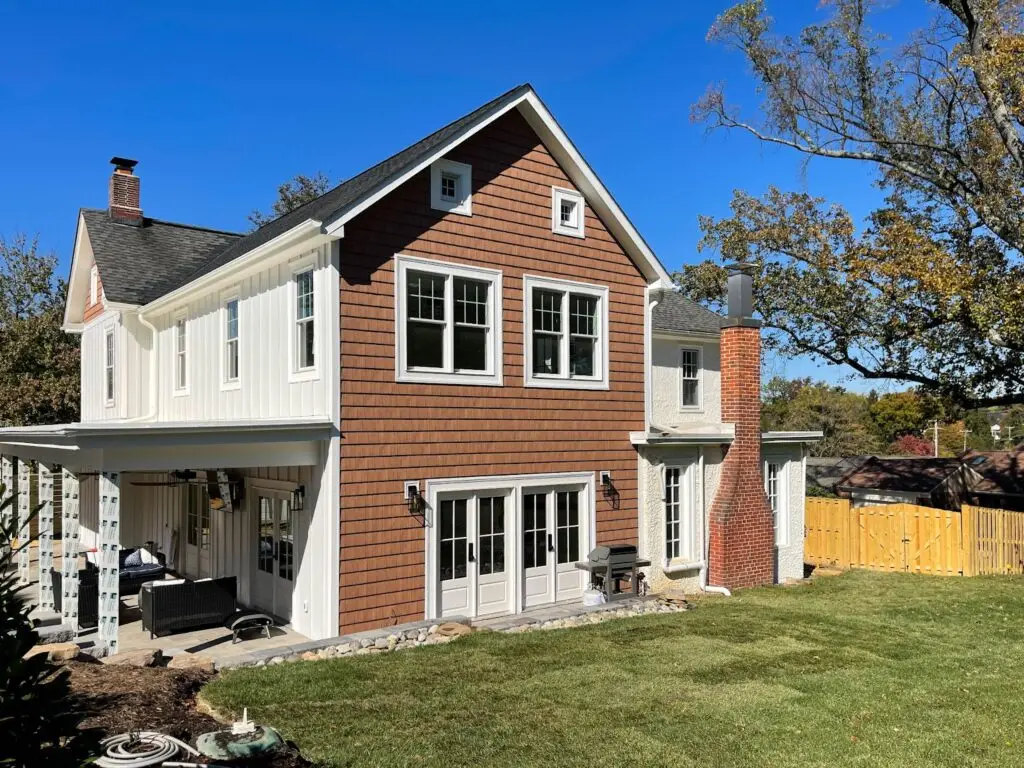
Your home feels tiny. Or you’re in love with your home but need more space. A home addition is a way to increase living space and property value.
If you’re planning a home addition project for 2025, one of the first questions that might come to mind is, “What is the cost per square foot for an addition in Annandale, VA?”
However, many factors can impact the cost estimates for hiring home addition contractors in Virginia.
- Average Costs: Typically range from $80 to $250 per square foot.
- Basic Additions: Around $80 to $100 per square foot for simple extensions like extra rooms.
- Mid-Range Additions: Between $100 and $150 per square foot for projects such as kitchens or bathrooms.
- Luxury Additions: From $150 to $200+ per square foot for custom designs using high-end materials.
It’s important to remember that estimated costs vary based on various factors such as location, materials, and the project’s complexity.
Key Takeaways:
- Engaging in a home addition project can be both time-consuming and costly
- Understanding the factors in home addition contractor cost is important
- Zoning laws and local regulations play a role in shaping the extent of such projects
Stop imagining and start planning! Click here for a free estimate and take the first step toward your stunning home addition.
Home Addition Cost Factors
Is your expanding family in need of an additional room, but you’re concerned about relocating to a new area? For homeowners who want to improve the house they already love, a home addition is a wonderful option.
However, it’s difficult to make a broad estimate regarding home addition costs in Virginia. A house addition might include anything from a single tiny room to a complete second story.
Mostly, homeowners expect to pay around $140 per square foot. However, actual costs may fall within a broader range depending on the following factors:
- General contractor and architect fees
- Roofing expenses
- Siding costs
- Obtaining necessary local permits
- Framing
- Flooring choices
- Finish selections
- Foundation installation
- Insulation requirements
- Electrical wiring and components
- Plumbing infrastructure
Let’s explore some factors that affect the total home addition cost in Annandale, VA.
1. Planning and Site Preparation
You’ll probably need to engage professionals to plan and design your addition before you can begin construction. If you expand the home’s foundation, you will also need to prepare the site for development.
This table displays the typical costs for site preparation and planning.
| Factor | Cost | Details |
| Land survey | $400–$1,800 | Identifies the borders, utilities, and foundations for the room addition |
| Grading and leveling | $1,000–$5,000 | Consists of leveling the yard before extending the current foundation |
| House plans | $1,200–$5,000 | New home addition plans designed by an architect or engineer |
| Home site excavation | $1,500–$5,000 | Includes preparing the ground for the new extension’s foundation |
| Building permits | $500–$2,000 | Depends on the local regulations and costs |
| Foundation | $2,400–$10,500 | Includes the price of building a concrete slab for the addition |
Before starting any home addition project, make sure to check the building and zoning rules in your area.
2. Materials
The selection of building materials and components for your home addition impacts its overall cost. This includes the quality, size, and shape of these materials.
Bathrooms, for example, tend to be pricier to add than bedrooms or entertainment areas. This is because bathrooms require the installation of plumbing fixtures like toilets, cabinets, and vanity countertops.
Below is the table of approximate costs for common construction materials:
| Materials | Costs |
| Paint | $15-$40 per gallon |
| Steel Beams | $100-$400 per foot |
| Drywall | $20-$30 per linear foot |
| Framing | $4-$16 per square foot |
| Windows | $300 to $1,500 per window (depending on size and style) |
| Doors | $200 to $1,000 per door (depending on type and size) |
| Concrete | $4-$8 per square foot |
| Plumbing pipes and fixtures | $5 to $15 per square foot |
| Insulation | $0.40-$2 per square foot |
| Electrical wiring and fixtures | $5 to $10 per square foot |
| Roofing | $3 to $7 per square foot (depending on the roofing type) |
To optimize your budget for these features, look for a good balance between functionality and aesthetics.
3. Project Scope and Size
Some contractors say that adding more rooms may cost more. But that’s not always the case.
The cost may vary based on the intended use of the new area. Adding a second kitchen or bathroom may be more cost-effective. On the other hand, adding a space where you spend time with loved ones and watch movies can be pricier.
Custom fittings are necessary for each existing room. Items like worktops and cabinets, which vary in quality and price, will take up a part of your home addition budget.
Here’s a list of average home addition cost examples and sizes:
| Type | Room Size (ft) | Average Cost for a Home Addition |
| Guest Bedroom | 10 x 10 | $8,000–$21,000 |
| Living/Family Room | 12 x 18 | $17,300–$43,200 |
| Kitchen | 10 x 10 | $10,000–$30,000 |
| Primary Bedroom | 14 x 14 | $15,700–$41,200 |
| Full Bathroom | 10 x 12 | $8,400–$30,000 |
| Half Bathroom/Laundry Room | 6 x 10 | $4,200–$15,000 |
| Sunroom | 150–300 | $15,000 – $105,000 |
| Garage or shed | – | $2,000 to $20,000 |
| Porch | – | $500 to $22,000 |
To get an accurate estimate of your home addition expense, it’s best to hire a professional general contractor. Consulting with the engineer and architect is advisable for more complex home addition projects.
4. Labor
Everyone dreams of perfect home improvement, not a back job. Your project will be well-constructed if you hire the right skilled workers.
Just like materials costs, labor costs for a home addition can also depend on several factors. However, roughly half of your home addition budget will be dedicated to skilled professionals. Licensed contractors ensure quality and safety throughout the project.
Here’s a typical cost breakdown for laborers in a home addition:
| Professional | Average Cost |
| Architect (optional) | 5% – 10% of the project cost |
| General Contractor | 10% – 20% of the project cost |
| Structural Engineer | $100 – $350 per hour |
| Plumber | $45 – $200 per hour |
| Carpenter | $75 – $100 per hour |
| Painter | $20 – $100 per hour |
| HVAC Expert | $50 – $100 per hour |
| Electrician | $50 – $150 per hour |
| Roofer | $40 – $80 per hour |
The actual figures might increase depending on local market conditions and expertise levels. Therefore, potential clients should request customized quotations from any professional beforehand.
5. Location
Just like any real estate, the location of your addition impacts the cost.
Northern Virginia, especially areas closer to Washington, D.C., tends to have higher construction costs due to some factors. These include higher land prices, stricter local building codes, and a higher cost of living.
Moreover, material costs can also be higher in Northern Virginia due to transportation costs and market demand. Construction costs are typically lower in Virginia’s rural areas than in urban or suburban ones, such as Northern Virginia.
6. Layout and Design
The design of your addition plays a role in the final cost. Simple layouts with minimal changes to your existing flow won’t add much to the labor cost. However, complex layouts with extensive remodeling will require more work from the professional.
Here are examples of layouts affecting cost:
- Open Floor Plan. An open floor plan typically has fewer walls and partitions, which can reduce material costs. They also often require less labor for installation.
- Closed Floor Plan. The closed floor plan features more walls, which may lead to higher material costs for additional framing, drywall, and finishing materials. They may also require more labor for installation.
- Single-Story. This type of house generally has a smaller footprint and simpler structural requirements compared to multi-story homes. This can result in lower construction costs per square foot.
- Multi-story. This type of building requires more complex structural designs, including additional support beams, columns, and stairs. These factors can increase material and labor costs.
- Foundation Type. The type of foundation can impact room addition costs. Slab-on-grade foundations are typically the most cost-effective.
Creating a new room within your home requires the right layout to build smoother movement throughout your living areas. If you’re unsure about a beneficial layout design for your home, you can always consult your home addition contractor in Annandale, VA.
How to Save on Your Home Addition
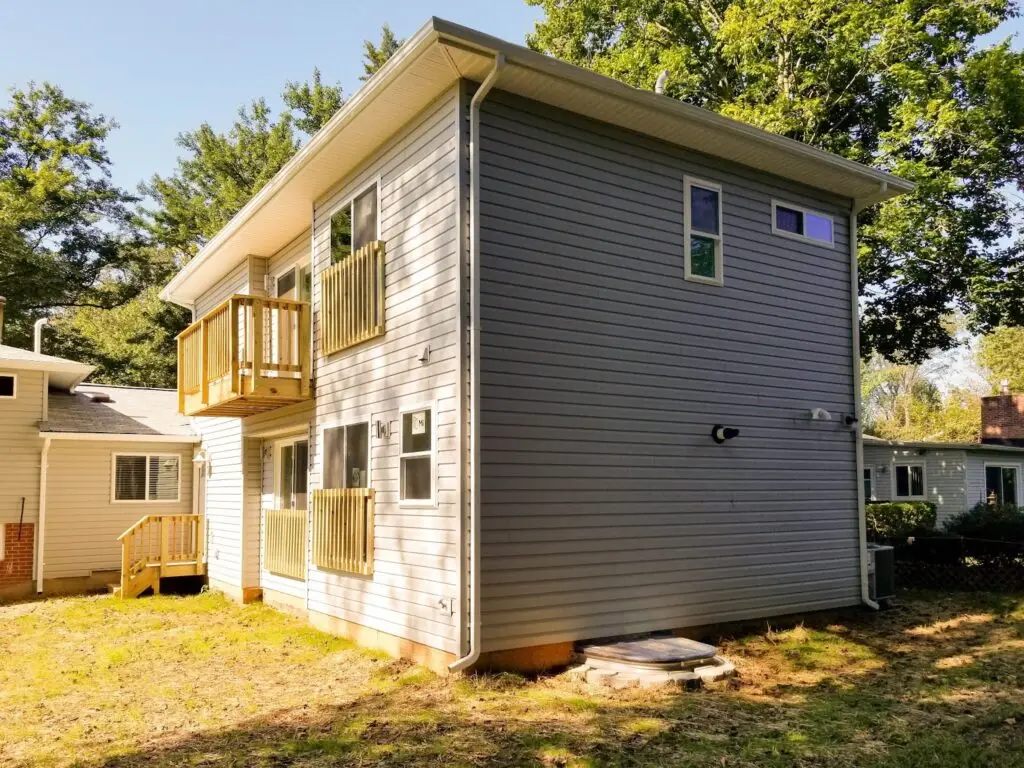
No matter how much money you have to spend, the home addition cost may quickly get out of control. So, you’re looking for a way to lower your expenses in home improvements.
Here are tips to help you save on your home addition project:
- Plan carefully. Before starting any work, create a detailed plan outlining your project’s scope, budget, and timeline. This technique helps prevent costly changes or delays later on.
- Consider Loans: You may get a home improvement loan or a home equity loan to sustain the project. Please review the terms thoroughly and ensure you have the means to pay.
- DIY Where Possible. If you possess the necessary skills and time, you might consider undertaking some tasks yourself, such as painting, minor demolition, or landscaping. However, avoid taking on projects beyond your expertise, as mistakes can cost more.
- Get Quotes. Shop around and obtain quotes from several suppliers for materials and labor. Compare the average price and negotiate to get the best deal.
- Reuse and Repurpose. Salvage materials from your existing space, or consider buying gently used items.
- Choose cost-effective materials. Look for durable yet budget-friendly materials for the ground floor, countertops, and cabinetry. Find sales, discounts, or bulk purchase options to save on costs.
- Consider Prefabricated Options. Prefabricated or modular additions can be more cost effective than traditional construction methods. They often require less labor and time, reducing overall expenses.
- Energy Efficiency. Incorporate energy-efficient features such as insulation, windows, and appliances into your addition. While the initial cost may be higher, you’ll save on utility bills in the long run.
- Flexible Design. Be open to design modifications that can save money without compromising functionality or aesthetics.
- Regular Maintenance. Once your addition is complete, maintain it regularly to prevent costly repairs or replacements. Inspections can extend the lifespan of your home or investment.
Hire the Best—Elite Contractors Services
Would you feel more comfortable starting a home addition project with assistance? Do you consider hiring an expert?
At Elite Contractors, we give our clients the right process for home addition, remodeling, and renovation without risking money and time. Working with us include:
- Complete project management
- High-quality construction
- Trustworthiness and professionalism
- Cleanliness and good customer service
- Insurance coverage and accessibility
Our dedicated team consists of experienced workers with Elite Contractors Services who have worked with us for several years. These guarantee top-notch quality in every aspect of the construction process.
Revamp Your Home
In the end, adding an addition to your house is well worth the expense, anxiety, and time. It’s the best choice if you love the location of your home but wish you had extra space.
However, what you need to consider is the kind of addition that impacts the total cost. Whether it’s a kitchen or a second-story addition, a successful renovation project requires the right home addition contractor. They know how to handle contractor labor costs and other expenses associated with the construction.
Experience exceptional home remodeling with our high-end construction services in Annandale, VA. As a design-build and remodeling general contractor, we offer expert craftsmanship, attention to detail, and extensive knowledge.
Start to make home improvements with us!
